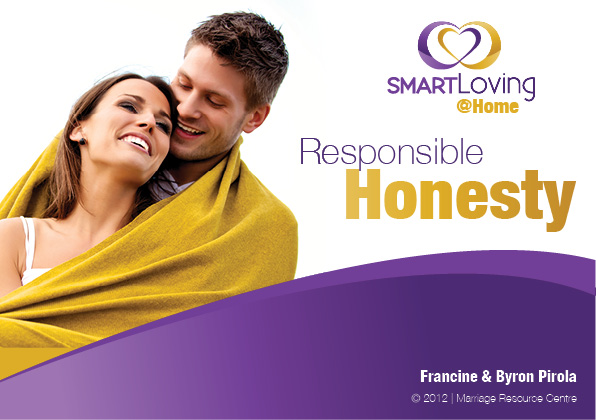Responsible Honesty

Defining Honesty
An honest person is someone we can trust; they have a track record of being true to their values and their word. The old adage ‘if we are honest in small things, we will be honest in big things’ is not only true, its inverse is also true: dishonesty in small things leads to dishonesty in large ones. Instinctively we know that if an individual has a habit of deceit in other, less significant, relationships, it’s more than likely that dishonesty will be part of this relationship.
Honesty is something we should cultivate in all aspects of our lives. Trust in relationship depends on honesty.
We can fall in love with a dishonest person, but it’s very difficult to stay in love with them.
If there is a history of deceit, we will naturally be guarded with that individual. Even when the only evidence we have of dishonesty occurs with people outside the relationship, it is difficult to trust that individual in this relationship.
But honesty in marriage and in life is more complex than simply telling ‘the truth, the whole truth, and nothing but the truth’. Honesty in marriage requires a responsible attenuation: it requires to volunteer all relevant information even if not explicitly asked. Called “Responsible Honesty” by renowned infidelity expert, Peggy Vaughan, this is a a practice that not only helps couples recover from the fall out of an affair, it also helps immunize a marriage from the risk of infidelity in many and various forms.



